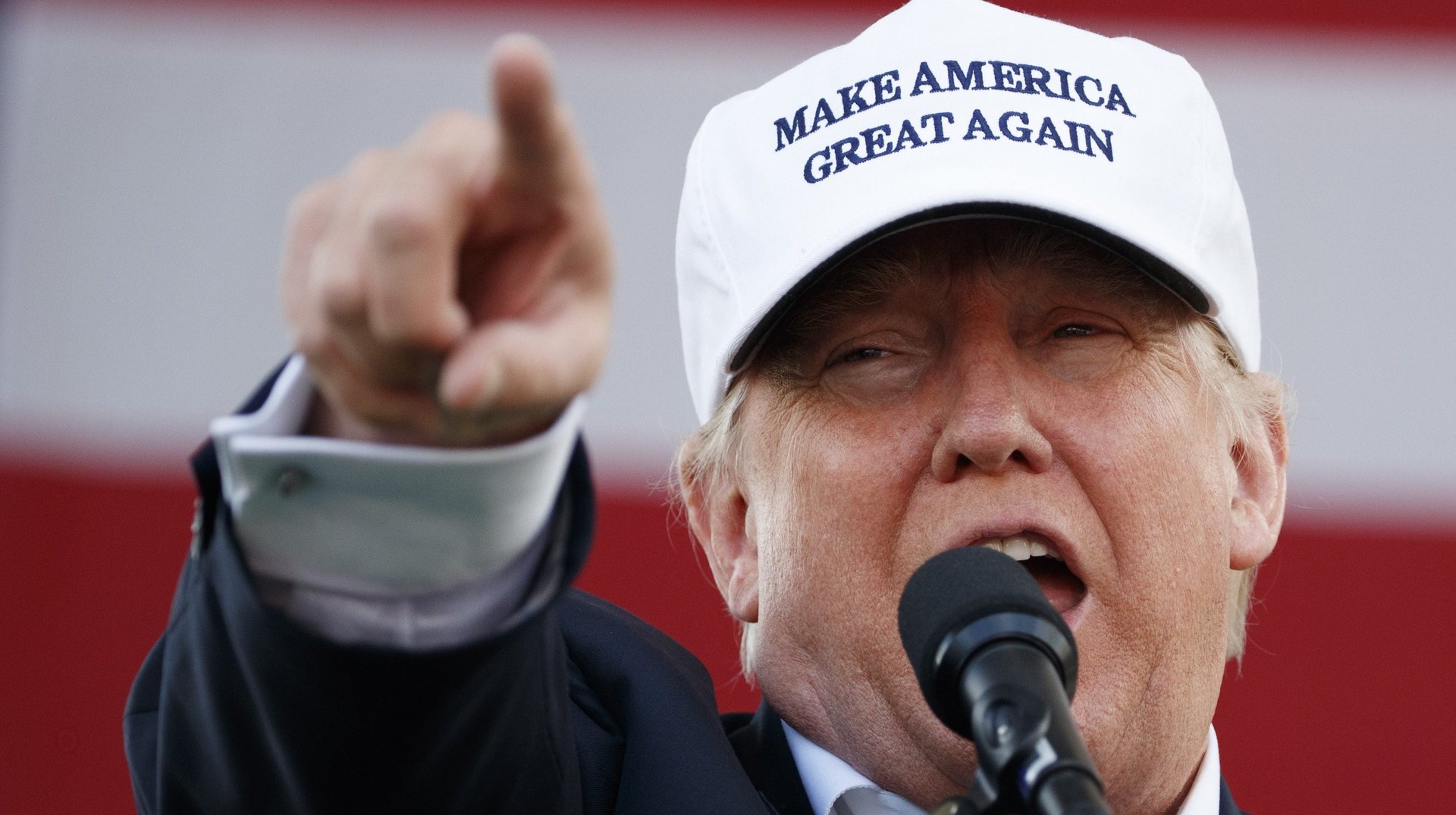The best argument for a recount of Donald Trump’s win comes from Trump himself
The newly elected president of the world’s most vaunted democracy is asserting that his country’s democracy is a sham.


The newly elected president of the world’s most vaunted democracy is asserting that his country’s democracy is a sham.
In an extraordinary series of tweets on Sunday (Nov. 27), US president-elect Donald Trump claimed—with absolutely no evidence—that millions of people voted illegally in the election he won on Nov. 8.
The tweets were a response to Democrats’ complaints that Hillary Clinton’s two million-and-counting vote margin in the popular vote undermines his mandate—though because of the US electoral college system, it doesn’t invalidate his victory.
They followed the news that Clinton’s campaign will join Green party candidate Jill Stein’s recount efforts in Midwest states narrowly won by Trump, which some fear could have been manipulated by foreign hacking. Trump responded by claiming that there has been “serious voter fraud” in several states that Clinton won, and that a biased media is ignoring it (again, presenting no evidence).
It’s worth pausing to underline just how massive a claim the president-elect is making: that the system that elected him is either (a) irreparably corrupt, or (b) woefully incompetent. By making this assertion, he is discrediting his own electoral college victory and, more importantly, the entire American democratic electoral system.
Again, there is no evidence to support Trump’s claim, which seems to have originated with the founder of an app who tweeted the conspiracy theory that millions of non-citizens voted—without presenting a shred of data. But outlandish as it is, any such claim should presumably include the possibility, as the Washington Post has pointed out, that there could also be fraudulent votes for Trump. This should, in theory, bolster the case for a broader recount across the nation.
Now, clearly—hopefully—Trump doesn’t mean to invalidate American democracy. He was just flying off the handle in reaction to a perceived insult, as has been his wont over his 50-year business career and recent political one. Nevertheless, in just one tweet, he has given fodder to anti-American propaganda outfits in autocracies all over the world, ready to tell their citizens that the city on a hill of American democracy is nonsense. If Trump ever finds himself at odds with Vladimir Putin’s Russia, for example, expect those tweets to be bandied across Russian media as a reminder that the US has no high horse to sit upon.
Perhaps even more importantly, his constant harping has undermined Americans’ faith in their own democracy. It’s perhaps unsurprising, given this rhetoric, that one of his supporters was charged with fraudulently voting twice, reportedly because she was so worried about the elections being “rigged” that she thought her initial vote might be changed to one for Hillary Clinton. Trump’s latest tweets also disseminated more of the kind of fake news that has confused voters and undermined any common understanding of what facts and truth are throughout this election cycle.
It’s very, very unlikely that the recounts in the Midwest will upend Trump’s victory or uncover any kind of foreign hacking. It’s even more unlikely that recounts would reveal even dozens, let alone millions, of fraudulent votes.
But a broader recount would do three important things:
- Put to bed any worry (legitimate or not) that there are problems with the electoral system—that there was voter fraud or that electronic counters may have been hacked.
- Set a precedent, that as Alex J. Halderman, the computer science professor who started the worries about foreign hacking, pointed out, would be a good general practice and “an important deterrent against cyberattacks on future elections.”
- Teach Trump that, as president, what he says has actual consequences.